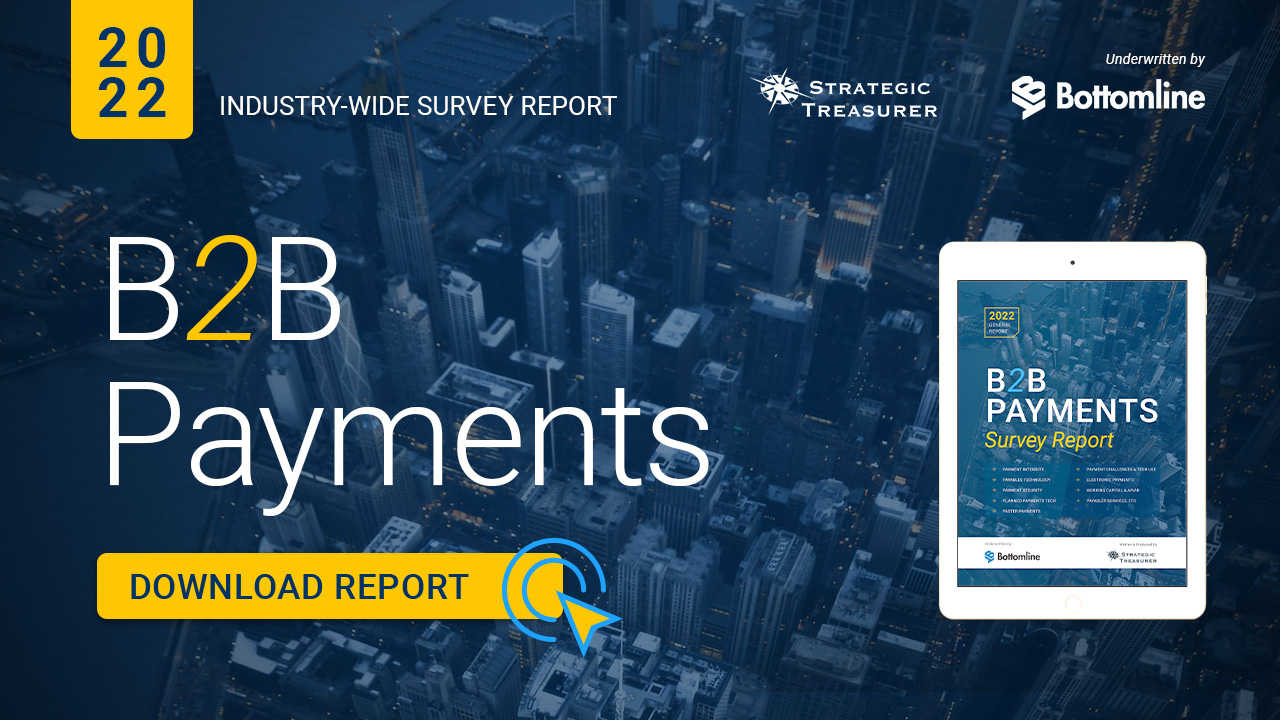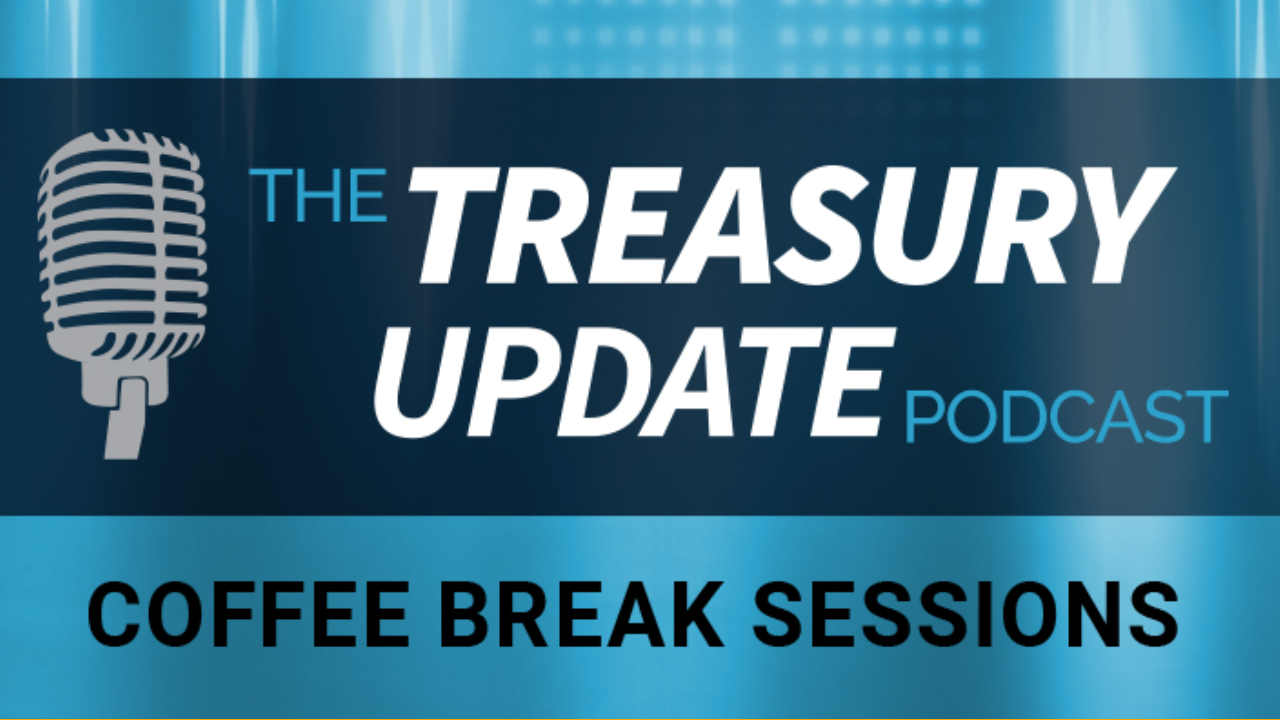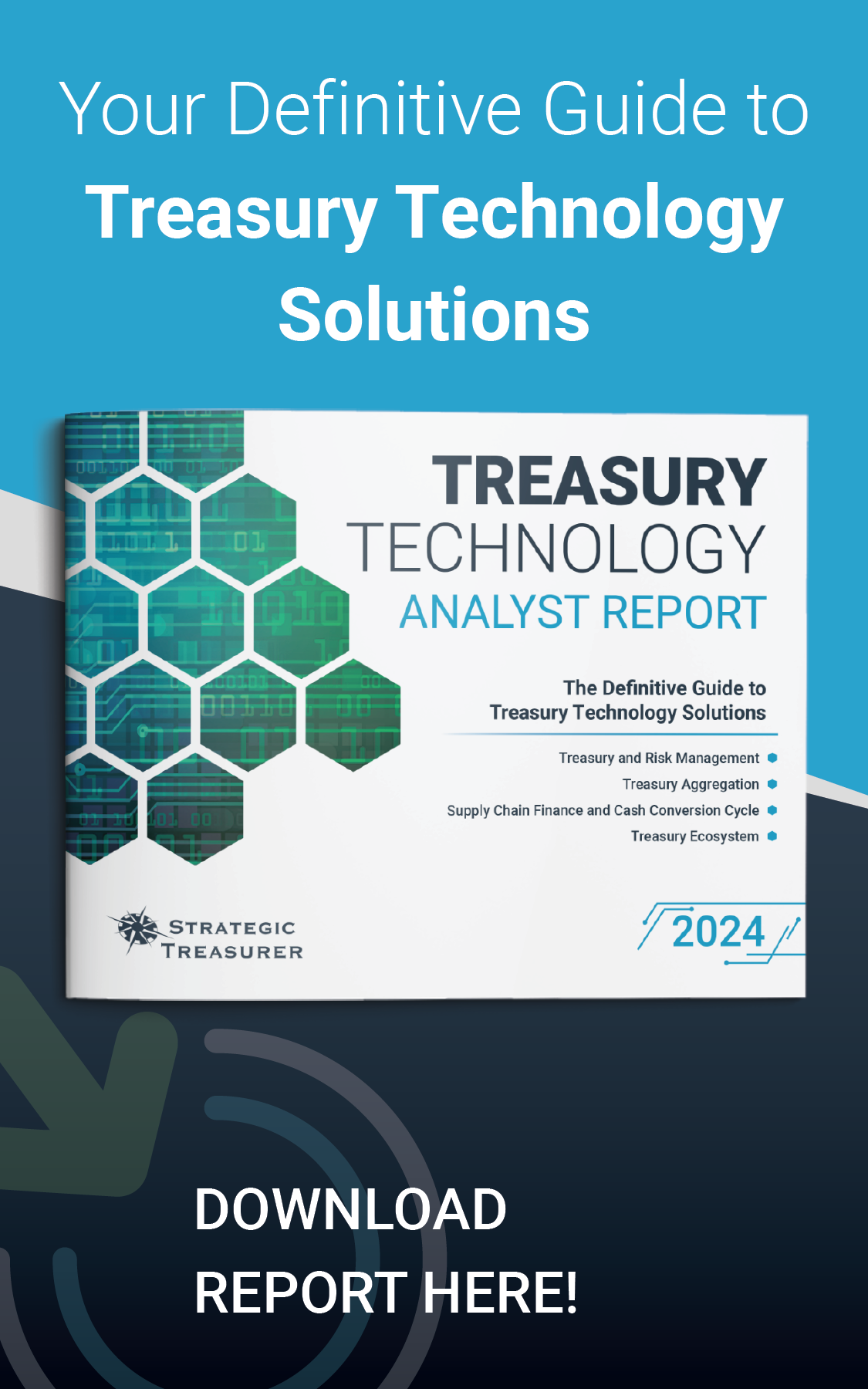
Session 86
Coffee Break Session:
What Is Digital Currency?
Crypto has been gaining popularity in the past decade. Will crypto help your department solve major issues, or will it simply introduce unnecessary complexity? In this episode, Paul Galloway and Jason Campbell discuss digital currency and its implications for treasury professionals. They also look at the difference between digital coins and digital tokens.
What questions do you have about crypto? Let us know by sending an email to podcast@strategictreasurer.com.
Host:
Jason Campbell, Strategic Treasurer


Speaker:
Paul Galloway, Strategic Treasurer


Episode Transcription - (Coffee Break Session Series) - Episode 86 - What Is Digital Currency?
Jason Campbell 00:04
Welcome to the Treasury Update Podcast, Coffee Breaks Sessions presented by Strategic Treasurer covering foundational topics and core treasury issues in about the same amount of time it takes you to drink your cup of coffee. I’ll be your host Jason Campbell, business development leader at Strategic Treasurer. Welcome back to another episode of the Coffee Break Session. I’ll be your host Jason Campbell, business development leader here at Strategic Treasurer. Joining in chatting with me today is our senior adviser Paul Galloway at Strategic Treasurer. Paul, glad to have you on again today.
Paul Galloway 00:36
Thanks for having me again.
Jason Campbell 00:37
Hey, you know, I always love talking to you, I think we had a great conversation, the last episode of the Coffee Break Session talking about FedNow. And really kind of going into this payment themed sessions that we’ve been having here, and nothing better than talk about digital currency. And I think that, you know, every day we’re seeing more and more platforms that are you know, and you hear more chatter, and we’re talking about digital currencies, and it’s a part of our everyday lives, in some form or fashion. And so looking forward to having this conversation with you today. So let’s kick it off and to, you know, for our audience to kind of describe a little bit but, you know, if you could just kind of tell us, you know, what is digital currency?
Paul Galloway 01:15
You know, Jason when most people think of digital currencies, they gravitate towards cryptocurrencies, which are digital tokens. They do not have an intrinsic value. They’re based on what the market is willing to pay. Other forms of digital currency, include stable coins, and then any digital currency that a country’s central bank creates. Digital currencies never take a physical form like fiat currency, such as the US dollar, which is also considered legal tender in our country. Fun fact that some people may not know that US currency used to be backed by gold and silver. So they called them gold notes, silver notes. I remember seeing some of these at my great grandmother’s house, and I thought they were the coolest thing ever. I thought, oh jeez, this is gold and silver. That’s, that’s not what we’re . . .
Jason Campbell 02:16
Did you find like you won treasure? You’re like, look, I’m found I found the gold.
Paul Galloway 02:21
Yeah. You know, there’s currently over 100 central banks are considering the creation of digital currency. They are similar to what most people consider digital currencies today, in the sense that the central bank will create this as a central bank digital currency, or CBDC. In the US, we haven’t quite gotten there. Other countries haven’t quite gotten there. But I expect that it’s just a matter of time, where the infrastructure for these types of coins are going to be created.
Jason Campbell 03:01
So talk to us a little bit about what’s the difference between digital coins versus digital tokens?
Paul Galloway 03:06
That’s great question Jason. There are three types of digital tokens: value tokens, utility tokens, and security tokens. A value token represents something of value in the form of digital assets such as videos, music, and even art. Utility tokens provide a service to the holder of the token. They are not used as a medium of exchange, but rather they’re used on the blockchain network. Security tokens represent ownership of a financial security that may be used to raise capital through the sale of tokens. These are regulated by the Securities Exchange Commission. There are three common types of digital coins: all coins, stable coins, and meme coins. All coins are used to describe all cryptocurrencies that are not Bitcoin. They have a specific purpose that is different in nature. Stable coins are pegged to the value of another asset such as the US dollar. Collateralized stable coins are backed by a pool of collateral, while algorithmic stable coins are mathematical algorithms to maintain the peg to the value of the asset. Meme coins have gained popularity through social media. A good example of a meme coin is Dogecoin. A meme coin is something that is tied to popularity on social media.
Jason Campbell 04:44
So I mean I was waiting for you to say when one particular person who tends to make that value of that particular coin up and down – Elon Musk, right? I mean think think I saw something the other day he flashed something and I think it increased it’s the Dogecoin value by four and a half million or billion or something of that nature, so.
Paul Galloway 05:03
Yep, yeah, he has, he has had some influence that way.
Jason Campbell 05:08
So thank you so much for kind of breaking down the differences in these coins and tokens. So let’s talk about, you know, I love everything digital, like I think in my life of the more ease, you know, fast efficiency, you know, less is more in this in this category. So I think when I think of digital. Well, let’s talk about some advantages. So kind of tell our listeners a little bit, what’s the advantages of digital currency?
Paul Galloway 05:31
Yeah, some of the advantages are payments can be completed quicker than doing ACHs or wires, you have the ability to complete international payments cheaper, they can be made 24/7, you know, all year round. So doesn’t matter, the date or the time you can execute these transactions. Provides people with the ability to make payments, when they don’t have a bank at all. So you don’t have to have a bank to make payments with these types of coins. The other one is that federal governments as they develop the digital currencies, I think this is going to make payments for government based programs easy. Okay, pay out tax refunds, easily using digital coins. They can pay for other federal programs like food stamps, or government programs, I should say. So I think there are some definite advantages to using digital coins.
Jason Campbell 06:33
So just like anything else, he has some advantages. There’s gotta be some downside somewhere, right? So I’m just kind of curious, in your mind, you know, and your thoughts around what are some of the disadvantages that you see with digital currency?
Paul Galloway 06:45
You know, we talked about a wide variety of digital coins, digital tokens, they’re used for different things, they’re tied to different things, or not tied to anything at all. So there are some disadvantages associated with digital coins. One of them is that, you know, there’s a large number of them out there. And they continue to be created on a regular basis. They have very specific uses. They’re tied to various things. And it’s difficult for people to educate themselves on what all these different coins do. It takes time. And so it’s not easy to make decisions around which one you’re going to use it unless you’re spending a lot of time digging into it. And for most people, they don’t want to spend a lot of time digging into it. They just want to know that it’s going to work. You know, if they’re wanting for whatever they’re wanting to do. They want something that they can use for everything. We’d like it easy, right? So that’s that’s a couple challenges that that right offhand are faced with digital coins. One of the other things is volatility of cryptocurrency prices. I mean, how many times have we seen cryptocurrencies that aren’t pegged to the value of an underlying asset, right? These currencies move in value based on what’s going on in the markets. And we’ve had all kinds of different headlines come across that have caused a lot of volatility in these coins. In particular, Bitcoin has been one that’s always been the headline, with movement up and down, wild swings along the way. We’ve heard of FTX and others that have failed, some they’ve been called Ponzi schemes, some that, you know, it was created volatility in this market for cryptocurrencies. With that being said, I don’t think cryptocurrencies are going away. I think it’s part of the growing process as you’re developing something that’s really new and novel. And these coins and tokens are novel, they’re unique, they’re new, there’s going to be some volatility along the way, I think you just need to understand that and you need to understand what you’re getting into before before you jump into it. And the last thing I think is, is around governments that are considering creating a digital coin. They all seem to be relatively slow coming to terms with that. There are some they’re moving along a little bit quicker. From a US perspective, my hope is that seeing FedNow. In our prior podcast, we talked about FedNow, the instant payment infrastructure that the Fed has created. My hope is that they’re going to turn their attention towards digital coins. I’d like to see the US be a leader in this arena. But right now, it’s been kind of a slow process.
Jason Campbell 09:46
Well, Paul, thank you for joining me today. And I really do appreciate the conversation around digital currency and really educating our listeners around what it is and you know, kind of some advantages and disadvantages to it. And for our listeners. Thank you again for tuning in to another episode of the Coffee Break Session. If you have any questions, comments or feedback you’d like to share, please send us a note at podcast@strategictreasurer.com. Until next time, take care.
Announcer 10:14
This podcast is provided for informational purposes only, and statements made by Strategic Treasurer LLC on this podcast are not intended as legal, business, consulting, or tax advice. For more information, visit and bookmark StrategicTreasurer.com.
B2B Payments Report
This study provides valuable insights related to the overall payments complexity and challenges being experienced by practitioners within the treasury and finance environment, and also sheds light on the unique solutions and tactics employed by organizations to optimize payment processes and maximize efficiency.
Coffee Break Sessions – A Treasury Update Podcast Series
A part of the Treasury Update Podcast, Coffee Break Sessions are 6-12 minute bite-size episodes covering foundational topics and core treasury issues in about the same amount of time it takes you to drink your coffee. The show episodes are released every first and third Thursday of the month with Host Jason Campbell of Strategic Treasurer.




